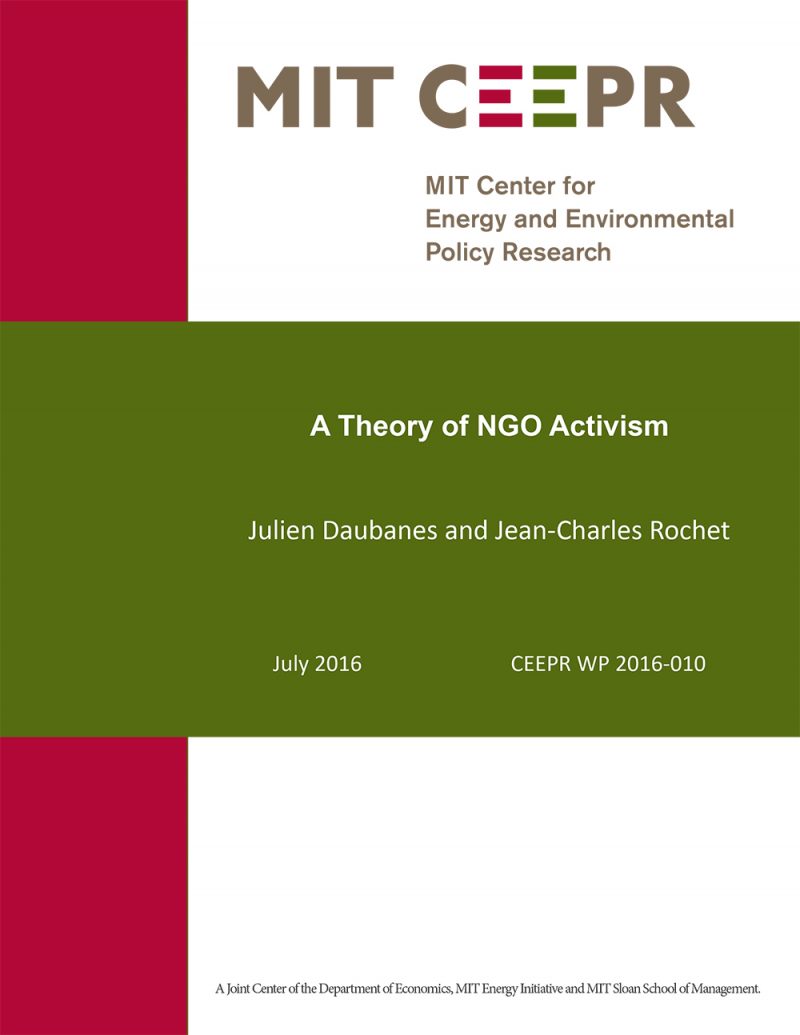A Theory of NGO Activism
Julien Daubanes and Jean-Charles Rochet
July 2016
Now more than ever, activist NGOs oppose industrial projects/practices that have nevertheless been approved by public regulators. These NGOs are consumer associations, environmental groups, and stakeholders’ advocacy groups, and are particularly active in the energy, food, retailing and banking sectors. To understand this rise in NGO activism, we develop a theory of optimal regulation in which a regulated industry seeks to undertake a project that may be harmful to society. On the one hand, public regulation is vulnerable to the influence of industry, and may approve the project even though it is harmful. On the other hand, an NGO may oppose the project. We characterize the circumstances under which NGO opposition occurs and the circumstances under which this opposition is socially beneficial. The theory is used to explain the role that NGOs have assumed in the last decades, and has implications for the legal status of NGO activism and the appropriate degree of transparency.
Keywords: NGO activism; Public regulation; Industry lobbying; Private politics; Transparency
JEL Codes: D02, D74, D82.



